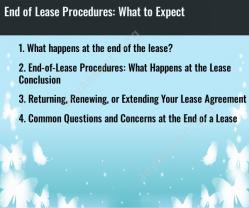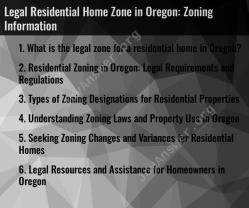What are the qualifications for buying a house?
Qualifications for buying a house typically involve a combination of financial, credit, and documentation requirements. Here's what you need to know about the key qualifications for purchasing a home:
Stable Income: Lenders will want to see that you have a stable source of income. This income can come from various sources, including employment, self-employment, investments, or retirement.
Good Credit Score: Your credit score is an important factor in obtaining a mortgage. Lenders use your credit history to assess your creditworthiness. While specific credit score requirements can vary, a higher credit score generally results in better loan terms.
Low Debt-to-Income Ratio (DTI): Lenders consider your DTI to determine if you can handle mortgage payments. DTI is the ratio of your monthly debt obligations to your gross monthly income. Most lenders prefer a DTI of 43% or lower, but this can vary by loan program.
Down Payment: You'll typically need a down payment to buy a home. The amount required varies depending on the loan type, but a common guideline is 20% of the home's purchase price. However, there are loan programs that allow for smaller down payments, such as FHA loans (3.5% down) and VA loans (0% down for eligible veterans).
Employment History: A stable employment history can improve your chances of qualifying for a mortgage. Lenders often look for at least two years of consistent employment.
Documentation: Be prepared to provide documentation, including pay stubs, tax returns, bank statements, and other financial records. Lenders use these documents to verify your income, assets, and liabilities.
Pre-Approval: It's advisable to obtain a mortgage pre-approval before house hunting. A pre-approval involves a lender reviewing your financial situation and providing a conditional commitment to lend you a certain amount. This can strengthen your position as a buyer.
Residency Status: Your legal residency status can affect your ability to obtain a mortgage. U.S. citizens and permanent residents typically have an easier time qualifying, while non-U.S. citizens may need to meet specific visa or residency requirements.
Home Appraisal: The home you're purchasing will need to undergo an appraisal to ensure it's valued at or above the purchase price. This is often a requirement of the lender.
Title Insurance and Home Insurance: Lenders usually require you to secure title insurance to protect against title defects and home insurance to protect against property damage and liability. These costs need to be considered in your budget.
Home Inspection: While not a strict qualification, a home inspection is highly recommended to identify any potential issues with the property.
Loan Program Specifics: Different loan programs, such as conventional, FHA, VA, and USDA loans, have varying qualification criteria, including credit score requirements, down payment options, and restrictions. Research the specifics of the loan program that best suits your situation.
It's important to note that mortgage qualification criteria can vary by lender and loan program, and they can change over time. Therefore, it's advisable to consult with a mortgage professional to get a clear understanding of your eligibility and the specific requirements for the mortgage you're interested in. This will help you determine your qualifications for buying a house and guide you through the homebuying process.
What are the qualifications and criteria for purchasing a house, particularly for first-time buyers?
There are a few key qualifications and criteria that lenders will consider when approving a mortgage for a first-time homebuyer, including:
- Credit score: A good credit score is essential for qualifying for a mortgage. Lenders typically want to see a credit score of 620 or higher.
- Down payment: Most lenders require a down payment of at least 3% of the purchase price of the home. However, some lenders may offer special programs for first-time homebuyers with a lower down payment requirement.
- Debt-to-income ratio (DTI): Lenders typically want to see a DTI of 43% or lower. This means that if your monthly income is $5,000, your monthly debt payments should be no more than $2,150.
- Employment history: Lenders typically want to see a steady employment history of at least two years.
- Assets: Lenders will also want to see that you have enough assets to cover your closing costs and other expenses associated with buying a home.
How to evaluate your eligibility and readiness for the home-buying process?
There are a few key things you can do to evaluate your eligibility and readiness for the home-buying process:
- Get your credit report and credit score: This will give you a good idea of your financial standing and how lenders will view you.
- Calculate your debt-to-income ratio: This will help you to determine how much debt you can afford to take on.
- Get pre-approved for a mortgage: This will give you a good idea of how much money you can borrow and what your monthly mortgage payments will be.
- Create a budget: This will help you to track your income and expenses and make sure that you can afford to buy a house.
What steps and considerations are essential for prospective homebuyers?
Here are some essential steps and considerations for prospective homebuyers:
- Get your finances in order. This includes making sure that you have a good credit score, a low DTI, and enough assets to cover your closing costs and other expenses associated with buying a home.
- Get pre-approved for a mortgage. This will give you a good idea of how much money you can borrow and what your monthly mortgage payments will be.
- Find a real estate agent. A good real estate agent can help you to find the right home for your needs and budget.
- Make an offer on a home. Once you have found the right home, you will need to make an offer to the seller.
- Get a home inspection. A home inspection is important to identify any potential problems with the home before you buy it.
- Close on the home. Once you have reached an agreement with the seller, you will need to close on the home. This is the process of transferring ownership of the home from the seller to you.
Buying a house can be a daunting task, but it doesn't have to be. By following these steps and considerations, you can make the home-buying process as smooth and stress-free as possible.













